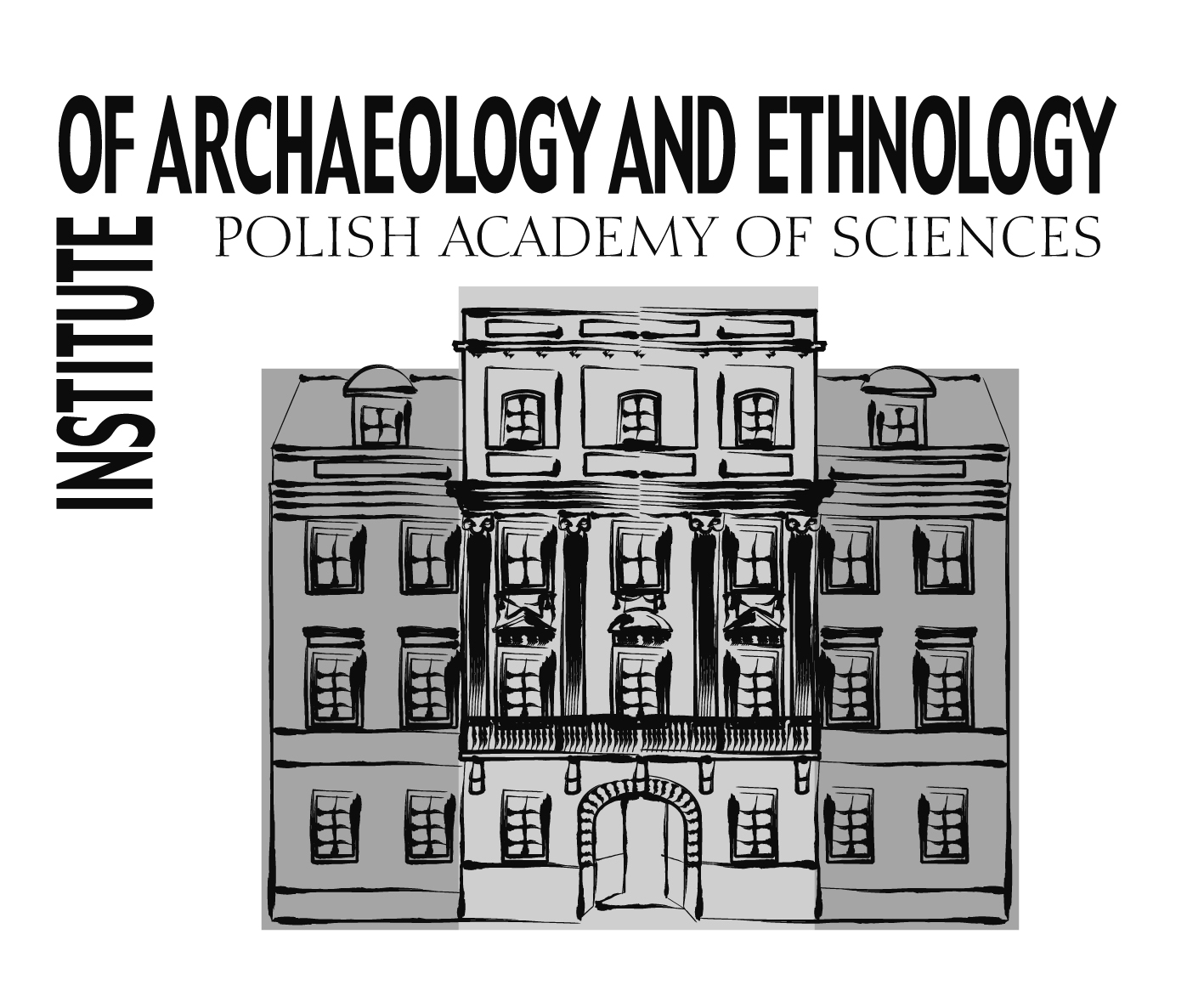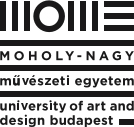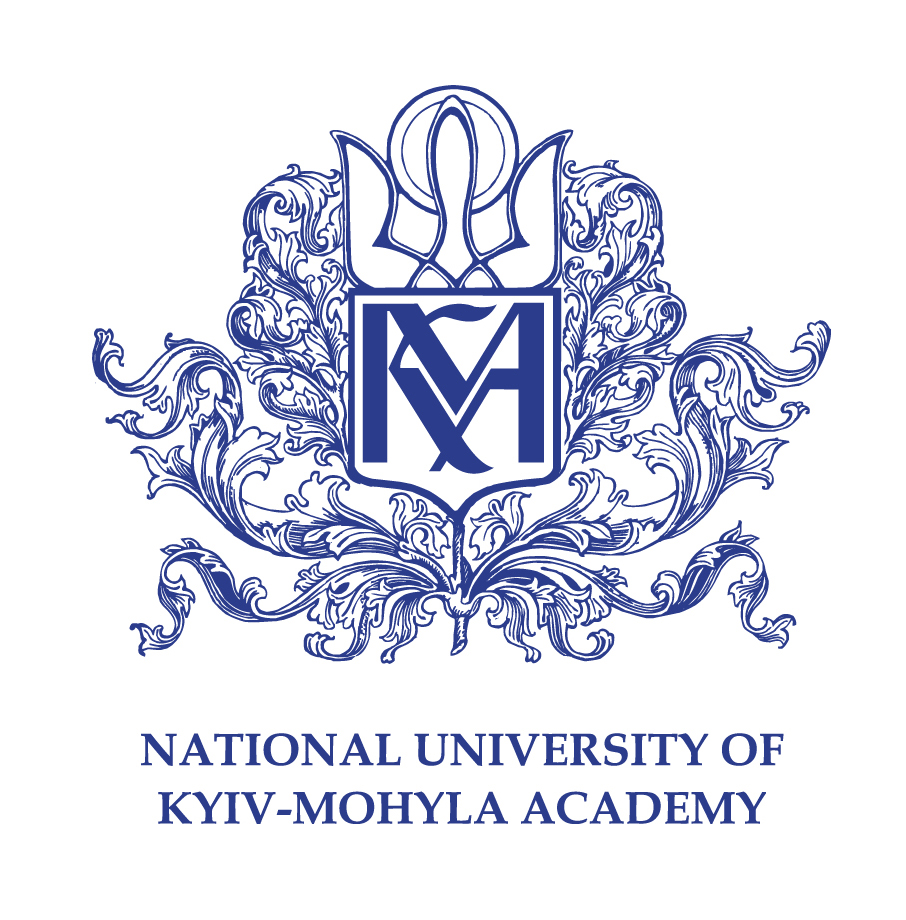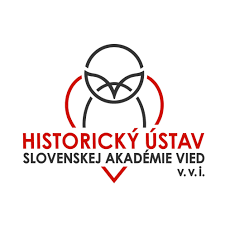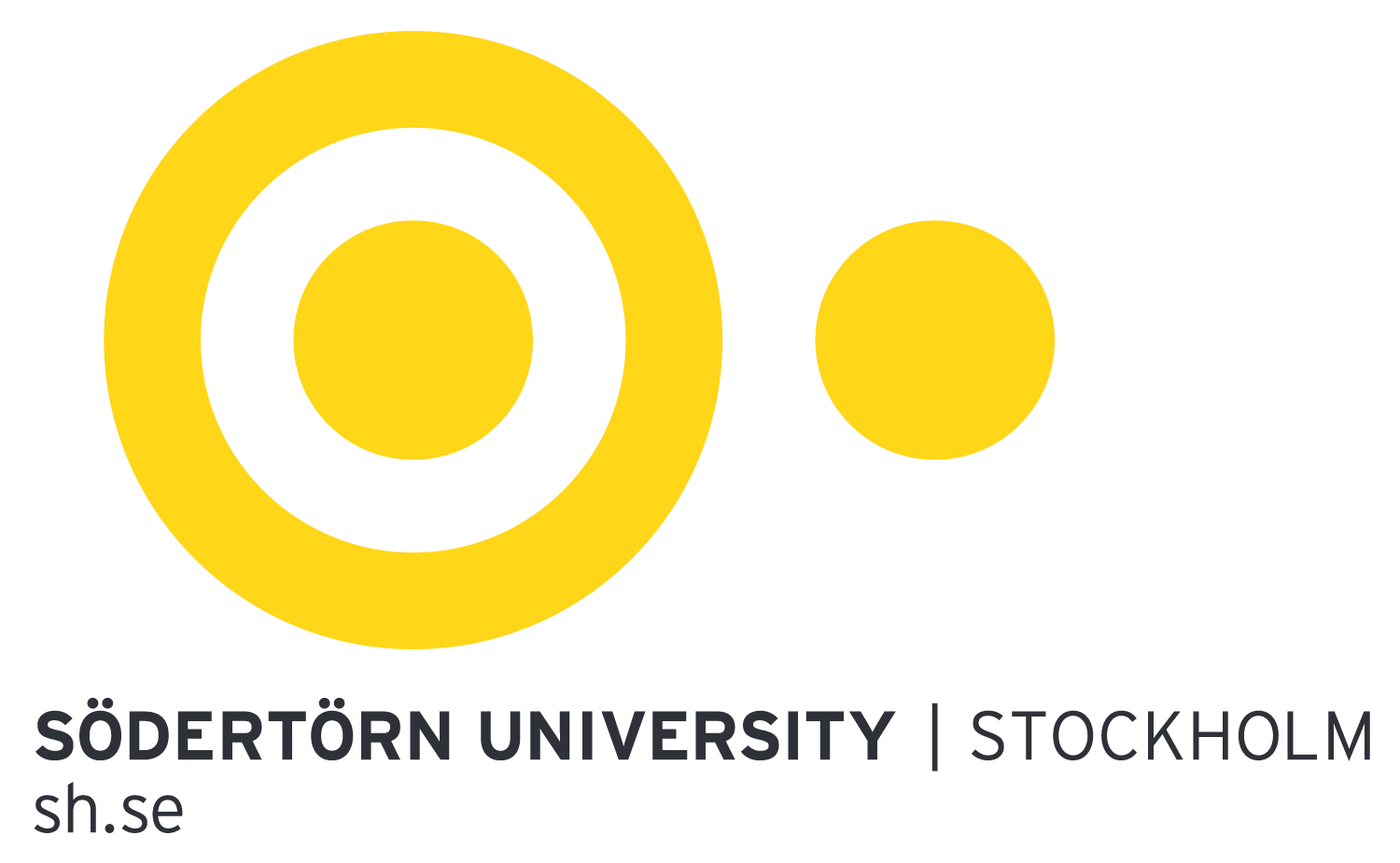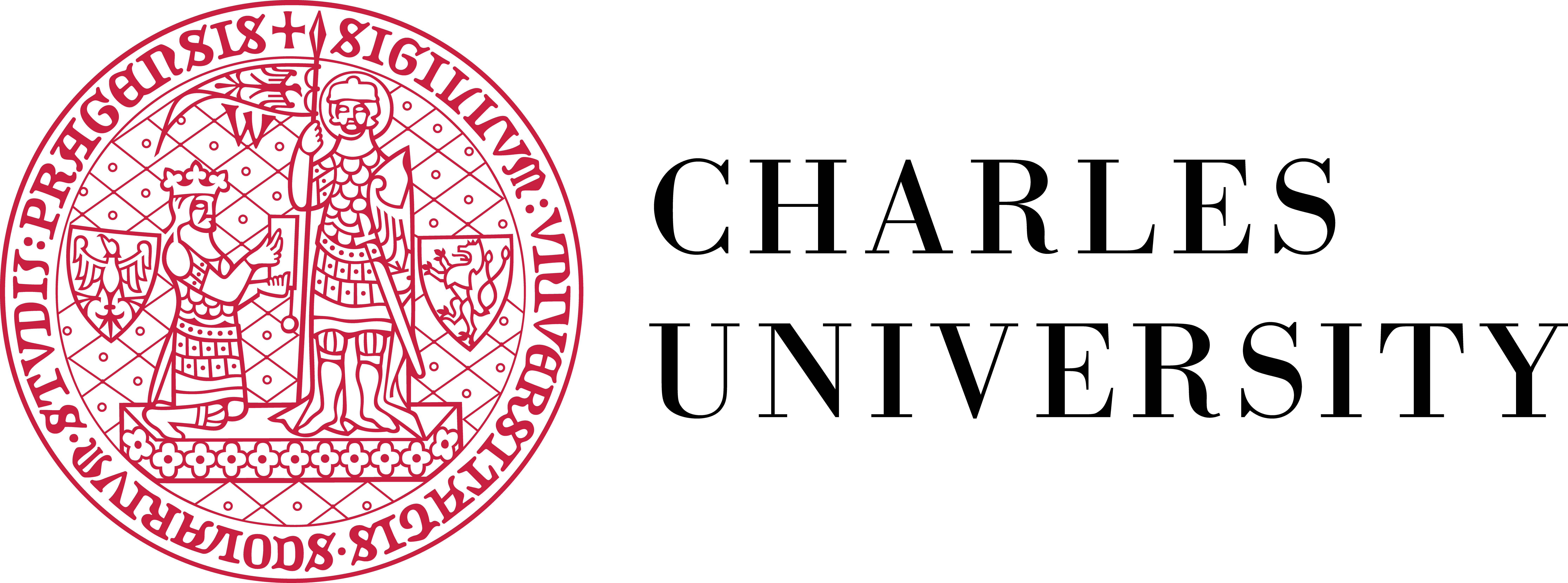Project information
Research project’s title: Post-secular approach to memory processes in Central-Eastern Europe
Funding: The project is financed by the Governments of Czechia, Hungary, Poland and Slovakia through Visegrad Grants from International Visegrad Fund ID 22230096
Dates: 01/03/2023 – 31/08/2024
Project leader: dr Zuzanna Bogumił
Project host: Institute of Archaeology and Ethnology of the Polish Academy of Sciences
Cooperating Institutions: Charles University, Slovak Academy of Sciences, Moholy-Nagy University of Art and Design, National University of Kyiv-Mohyla Academy
Contact: e-mail: zbogumil(at)iaepan.edu.pl
Project objectives
There is a lack of understanding and appreciation of the subtle and diverse connections between memory and religion. Religion is often reduced to a tool of the national politics of memory. Religious memory is perceived as an inner phenomenon of a religious group, and the influences of religion on secular memory are thereby ignored. This project aims to fill this gap by gathering a team of researchers from different academic fields to discuss various relationships between religion and memory and to conceptualize exiting interdependencies of institutionalized churches, vernacular religious communities, authorities, and civil society in the process of memory production in the V4+ countries.
By focusing on the selected countries of the region and various Christian denominations, our research group will jointly conceptualize post-secular memory for its applicability to the CEE societies. We will also discuss implementation of the elaborated post-secular concepts in specific empirical cases, which each of the project participants are expected to work on individually. These individual cases will focus on different aspects of memory development, such as gender influence, materiality of memory, and memory politics.
Planned events
Kick-off meeting (March 2023, online)
One-day online research meeting bringing the partners together to meet each other and elaborate a detailed research working plan. The meeting is organized by Polish partner.
Regular online meetings (March 2023 – June 2024, online)
We organize one working seminar each month to discuss selected articles and books, existing concepts of postsecularity and establish what we understand by postsecular approach to memory processes in Visegrad region.
Workshop, Bratislava (20 – 23 September 2023, in person)
3-days workshop in Bratislava brought together team partners who discussed ongoing achievements of the project. During this workshop, we focused on the frame of the concepts of post-secular memory that we plan to apply to memory processes in Visegrad region. We had a postsecular walk in Bratislava made by Agáta Šústová Drelová. Later, each team member presented its individual project.
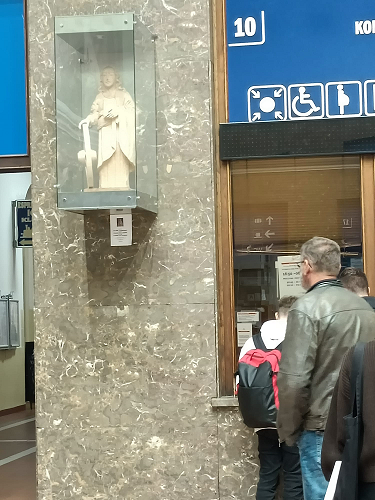
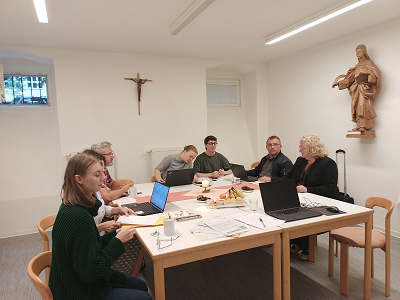
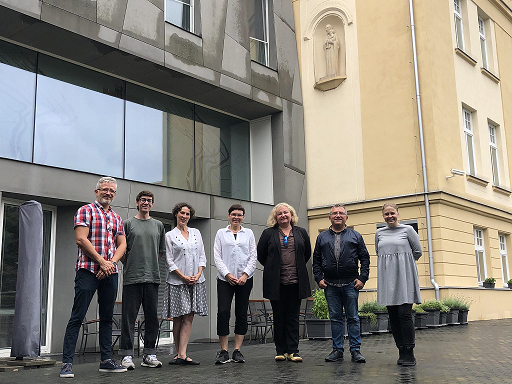
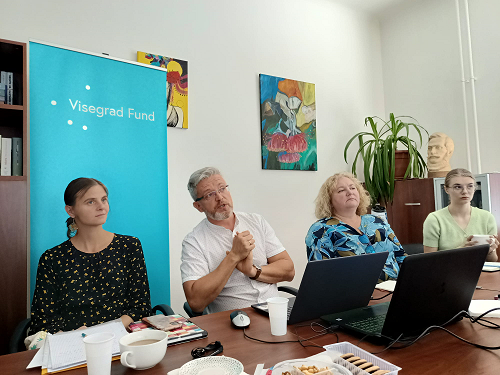
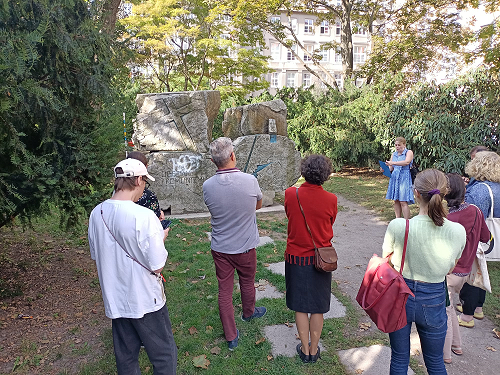
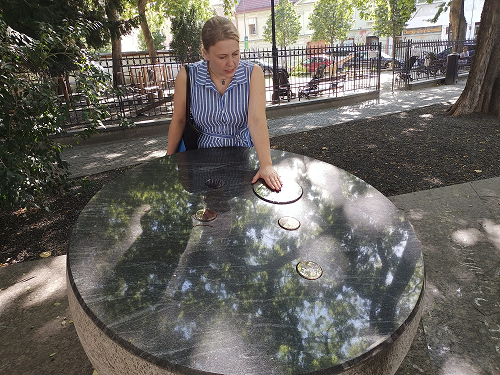
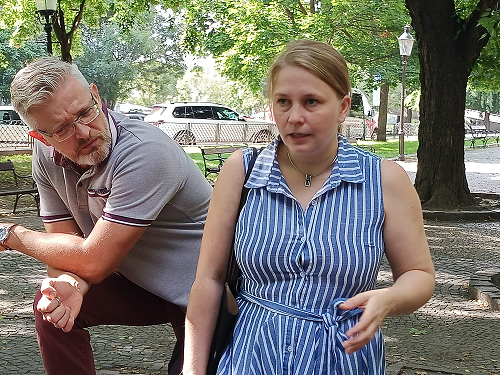
Workshop, Prague (31/01 – 02/02 January 2024, in person)
Two-day workshop brought together team members who discussed ongoing achievements of the project. Alessandro Testa, an anthropologist of religion invited participants on the postsecular walk in Prague. All team members actively engaged in works on our book proposal "Toward post-secular memory studies". They presented the drafts of their future book chapters.
PROGRAM
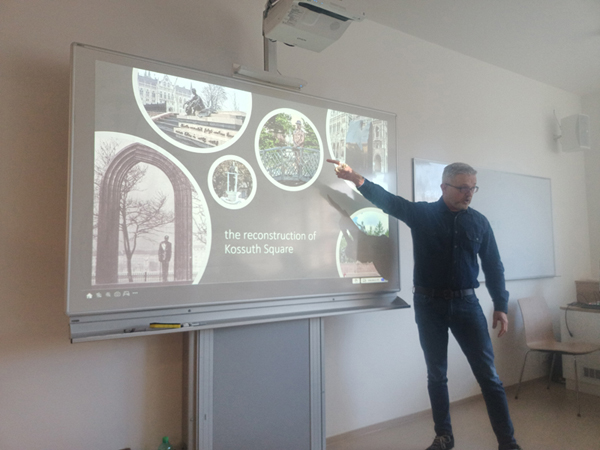
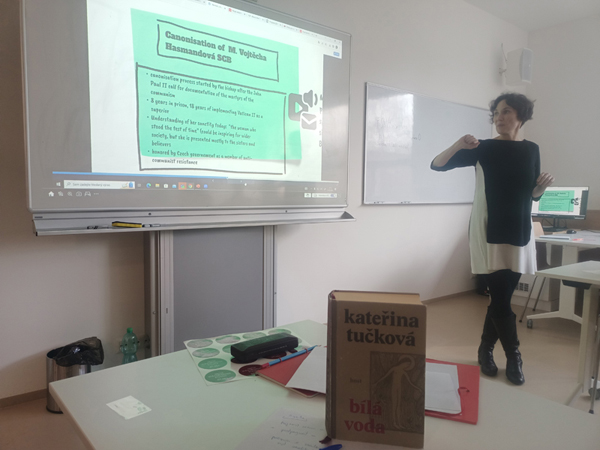
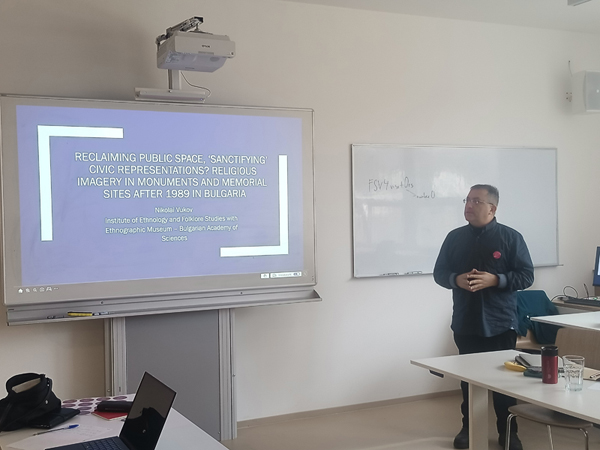
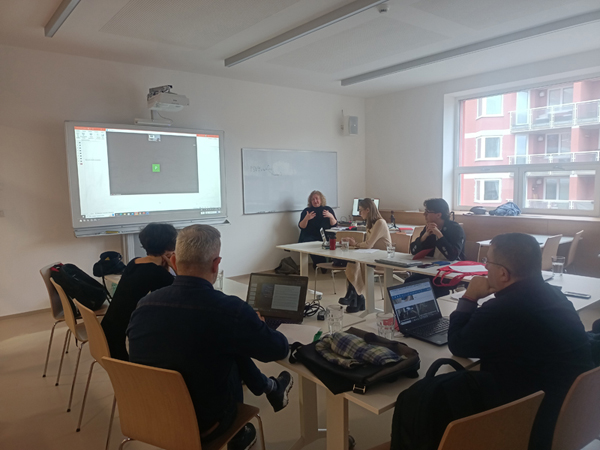
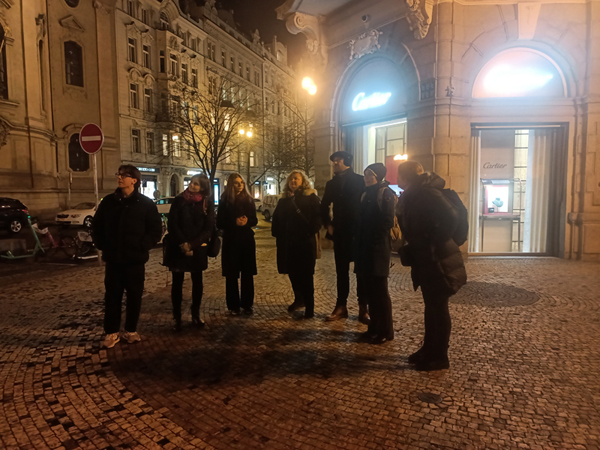
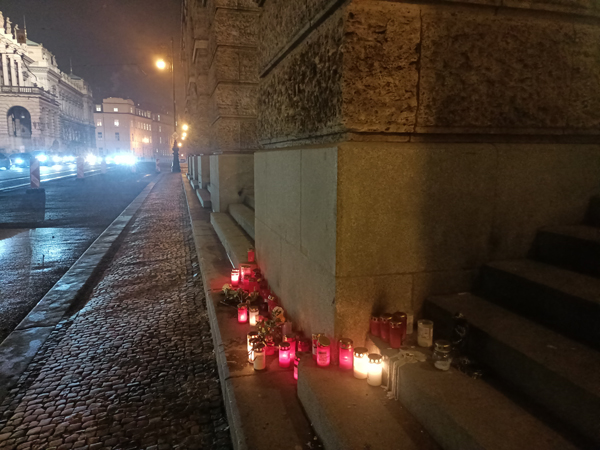
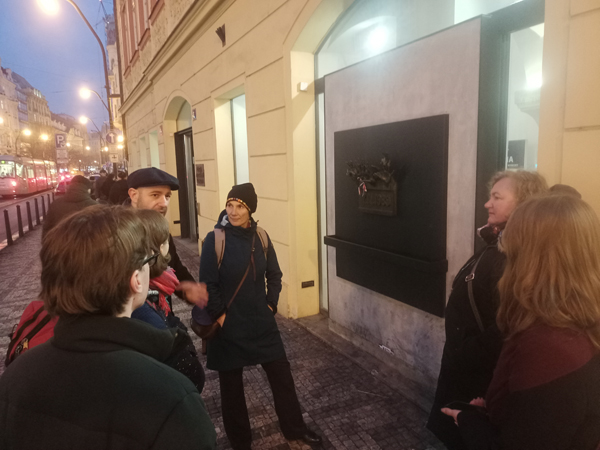
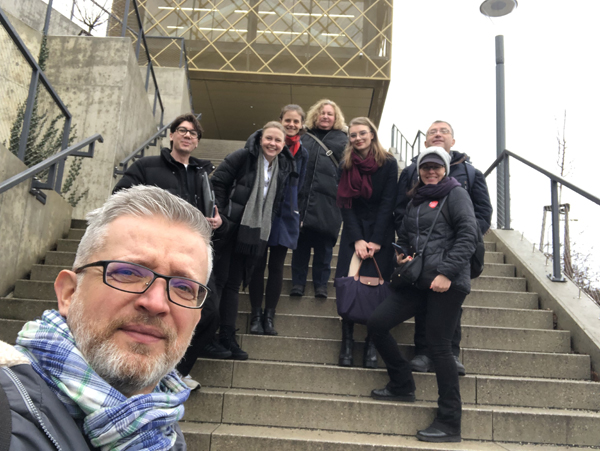
Conference, Warsaw (13-15 June 2024, hybrid)
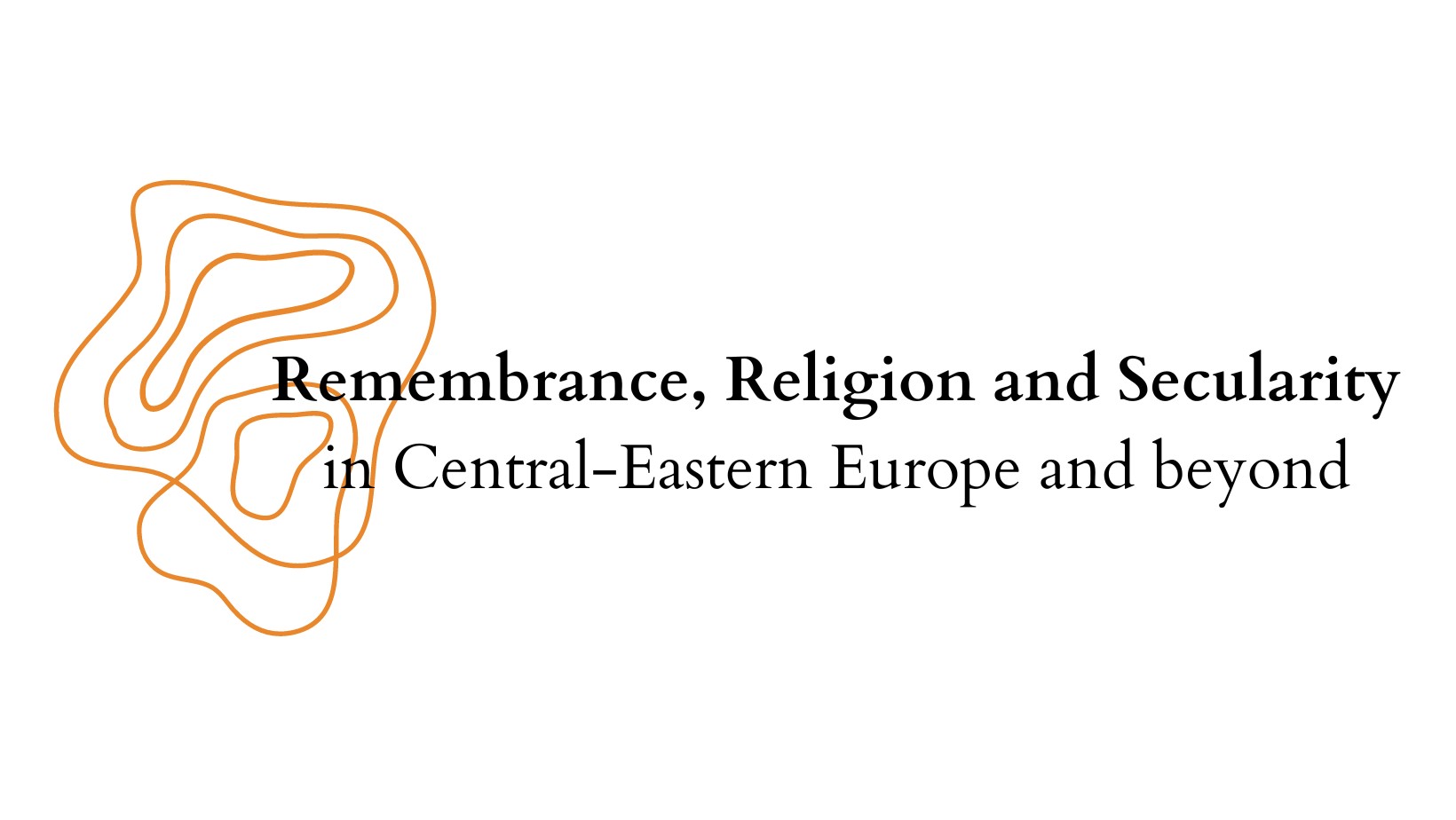
Three-days hybrid conference entitled “Remembrance, Religion and Secularity in Central and Eastern Europe and beyond” which aims to discuss how religion mobilizes and is mobilized in memory work, and how it affects remembrance processes in Central and Eastern Europe. It also aims to share project results with wider public. Apart of the panel sessions, two plenary sessions are planned: “Memory and Post-secularism” and “Memory and Religion in Central and Eastern Europe”. The conference will be preceded by pre-conference masterclasses for MA and PhD students on June 12, 2024.
CALL FOR PAPERS
Project team
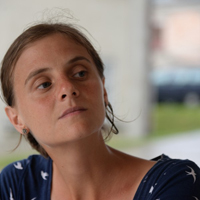
Kamila Baraniecka-Olszewska works in the Institute of Archaeology and Ethnology of Polish Academy of Sciences. She studied ethnology and Latin American studies. Her main areas of interest are the anthropology of religion and performance studies, and in particular forms of religious expression. She received her habilitation in 2019. She is the author of articles on contemporary religiosity, historical reenactments and of the books: The Crucified: Contemporary Passion Plays in Poland (De Gruyter, 2017) and World War II Historical Reenactment in Poland: The Practice of Authenticity (Routledge, 2021). She realizes a project funded by National Science Centre Poland Ambient History: Anthropological Study of Participation in Historical Performances in Poland and participates in a grant funded by Visegrad Fund Post-secular approach to memory processes in Central-Eastern Europe.
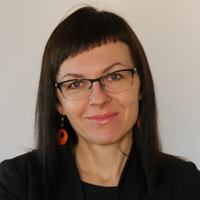
Zuzanna Bogumił is cultural anthropologist, working at the Institute of Archeology and Ethnology, Polish Academy of Sciences. She specializes in memory studies, museum studies and anthropology of religion. For last few years Bogumił worked on the religious memory of Soviet repressions in Russia and coordinated the project sponsored by the Polish National Science Centre, “From Enemy to Martyr”. She also conducted research on the historical exhibitions in the Church’s crypts. Bogumił is an author, co-author or co-editor of several books, among them: Gulag Memories: The Rediscovery and Commemoration of Russia's Repressive Past (Berghan Books 2018), Milieux de mémoire in Late Modernity. Local Communities, Religion and Historical Politics (Peter Lang 2019). Memory and Religion from a Postsecular Perspective (Routledge 2022). Her articles have appeared in Europa-Asia Studies, Religion, State and Society, East European Politics and Societies.
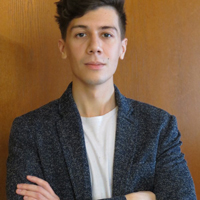
Andriy Fert is a PhD candidate in history at the National University of Kyiv-Mohyla Academy in Ukraine. He currently completes his dissertation dedicated to state control of Orthodox Christian communities of Kyiv in the 1970s-1980s. He studies the interplay between religion, nationalism, and memory, and the role of Churches in memory politics. His publications include “Equivocal Memory: What does the Ukrainian Orthodox Church of the Moscow Patriarchate Remember?” in Religion During the Russian-Ukrainian Conflict (2020) and "‘How could we possibly forget this?’: Ukrainian Orthodox Churches and the Soviet Past during the War" (forthcoming in 2023). Andriy also coordinates several educational projects for secondary school history teachers and studies the impact of the Russian invasion on the Ukrainian Orthodox Church of the Moscow Patriarchate
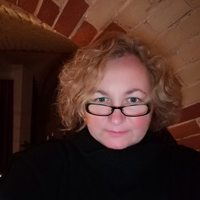
Agnieszka Halemba (PhD 2003 Cambridge) is a social anthropologists working at the Institute of Archaeology and Ethnology of the Polish Academy of Sciences and teaching at the University of Potsdam. She focuses on the anthropology of religion, with long-term field research conducted in southern Siberia and Transcarpathian Ukraine. Since 2016, she conducts research on the significance of religious architecture in secular contexts based on fieldwork in eastern parts of Germany. She is also a head of the Anthropology Undisciplined Research Unit, which focuses on development of innovative methodologies for interdisciplinary research and an author of two ethnography-based monographs: Negotiating Marian Apparitions: The Politics of Religion in Transcarpathian Ukraine (Central European University Press 2015) and The Telengits of Southern Siberia: Landscape, Religion and Knowledge in Motion (Routledge 2006).
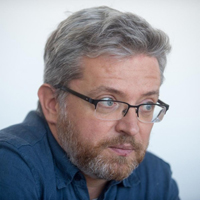
István Povedák has an MA in European Ethnology, History, and Religious Studies from the University of Szeged. He obtained his PhD in Folklore and Cultural Anthropology from the Eötvös Lóránd University of Budapest, in 2009, and received his habilitation in art theory from the Moholy-Nagy University of Art and Design (MOME), Budapest. His research fields include modern mythologies, celebrity culture, conspiracy theories, UFO culture, religious neo-nationalism, ethnic paganism, and Romani culture in Hungary. He is the president of the Hungarian Cultural Anthropology Association. Povedák was the chair of SIEF (International Society for Ethnology and Folklore) Ethnology of Religion Working Group between 2013 and 2019. He has been a guest lecturer at many universities including the Ohio State University, the University of Oregon, and the University of Riga. As a senior researcher he used to work for the Hungarian Academy of Arts, and Charles University in Prague. Since 2018 Povedák is an associated professor at the Institute for Theoretical Studies, MOME.
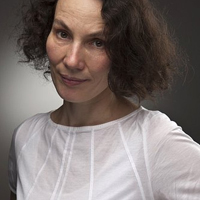
Barbora Spalová has studied ethnology and social anthropology in Prague. She does research in the field of anthropology of religion, particularly the anthropology of Christianity. She is also involved in border studies and memory studies. She lives in the Czech-Polish-German borderland. She is the editor-in-chief of the journal for qualitative research Biograf.
https://cuni.academia.edu/BarboraSpalov%C3%A1
https://cirkev.fss.muni.cz/
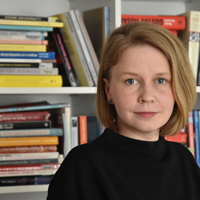
Agáta Šústová Drelová is a contemporary history researcher at the Institute of History, Slovak Academy of Sciences and an author of weekly history podcast at Slovak daily SME. She is the author of several articles and book chapters focusing on religion, national identity and nationalism in late socialist and early post-socialist Czechoslovakia. A University of Exeter and St Andrews graduate, she has been the beneficiary of a number of scholarships including research fellowship at the Imre Kertész Kolleg in Jena. Currently she divides her time between her two children, research and popularisation of history. Within the Post-secular approach to memory processes in Central-Eastern Europe project she will explore the nexus of gender and national identity within post-war Catholic memory in Slovakia.
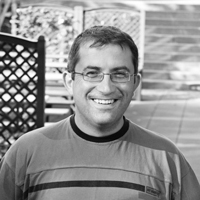
Nikolai Vukov is Associate Professor at the Institute of Ethnology and Folklore Studies with Ethnographic Museum at the Bulgarian Academy of Sciences (IEFSEM – BAS), and Visiting Lecturer in cultural history and social anthropology at Sofia University “St. Kliment Ohridski” and “Paisiy Hilendarski” University of Plovdiv. He has a Ph.D. in anthropology and folklore studies (2002 – Bulgarian Academy of Sciences) and a Ph.D. in modern history (2005 – Central European University, Budapest). Nikolai Vukov has specialized in a number of universities and research centers, including Wissenschaftskolleg – Berlin, Maison des sciences de l’homme – Paris, American Research Institute – Istanbul, and New Europe College – Bucharest. He is author and co-author of several monographs and of more than 120 articles and studies in Bulgaria and abroad. His scholarly interests are related to the anthropology of memory and commemorations; monuments, public rituals, and museum representations; 20th-century cultural history.
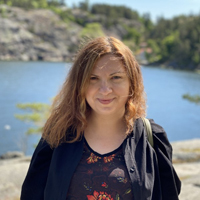
Yuliya Yurchuk is a Senior Lecturer of History at Södertörn University, Sweden. She specializes in memory studies, history of religion, and the study of nationalism in East European countries. She is the author of the book Reordering of Meaningful Worlds: Memory of the Organization of Ukrainian Nationalists and the Ukrainian Insurgent Army in Post-Soviet Ukraine (Acta 2014). Her articles have appeared in Memory Studies, Nationalities Papers, Europe-Asia Studies, Nordisk Østforum, Baltic Worlds, Ukraina Moderna. Her recent work focused on memory and religion. She is one of the editors of “Memory and Religion from a Postsecular Perspective” (Routledge, 2022, co-edited with Zuzanna Bogumil). Currently she is working on the project in the field of the transnational intellectual history titled “From Sweden with Love: Circulation and interpretation of Ellen Key’s ideas about love, motherhood, and upbringing in the late Russian Empire and the early Soviet Union (1890-1930s)” founded by the Foundation for Baltic and East European Studies.




